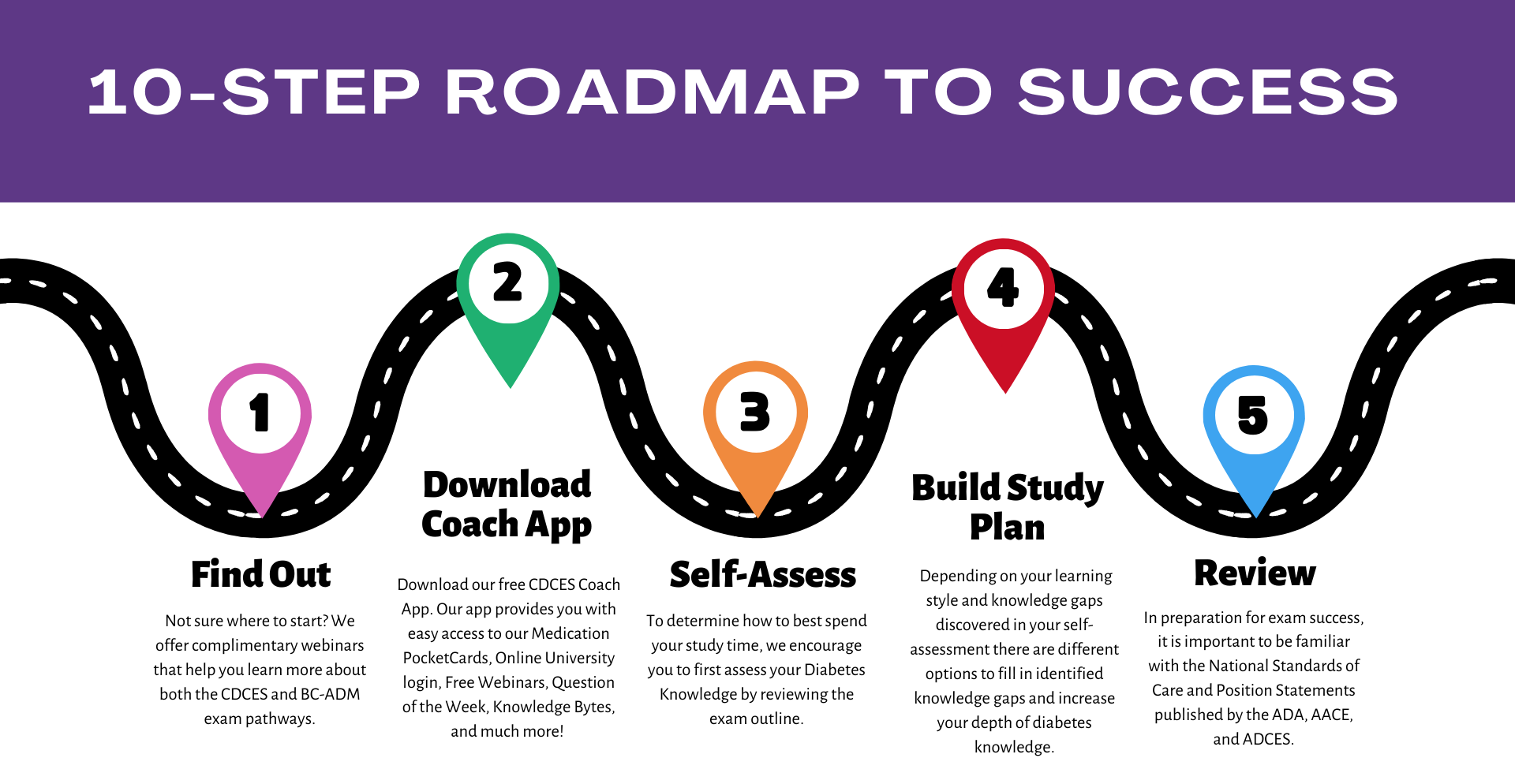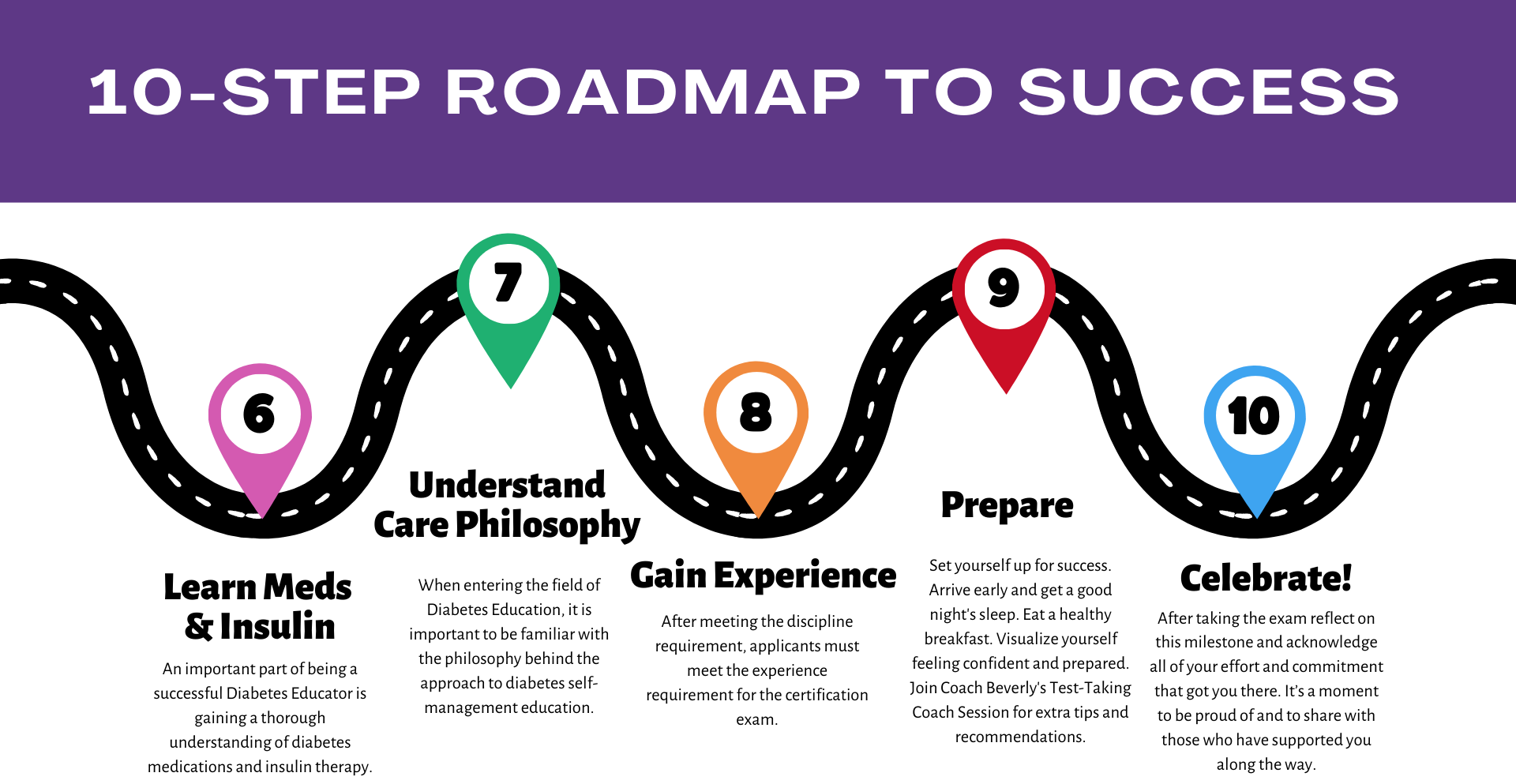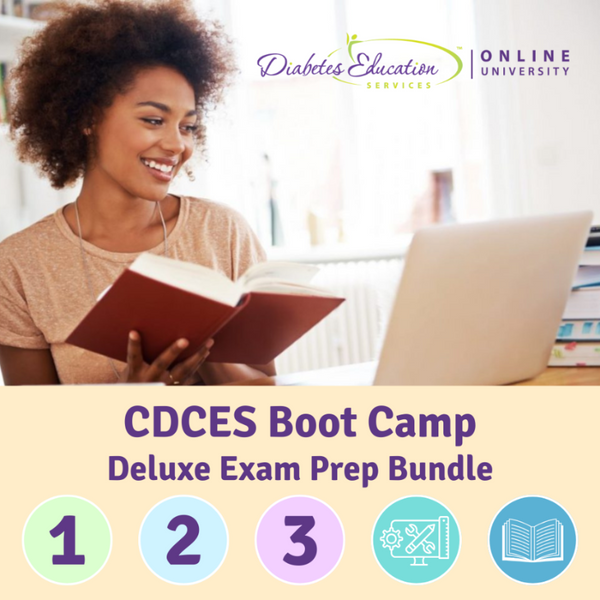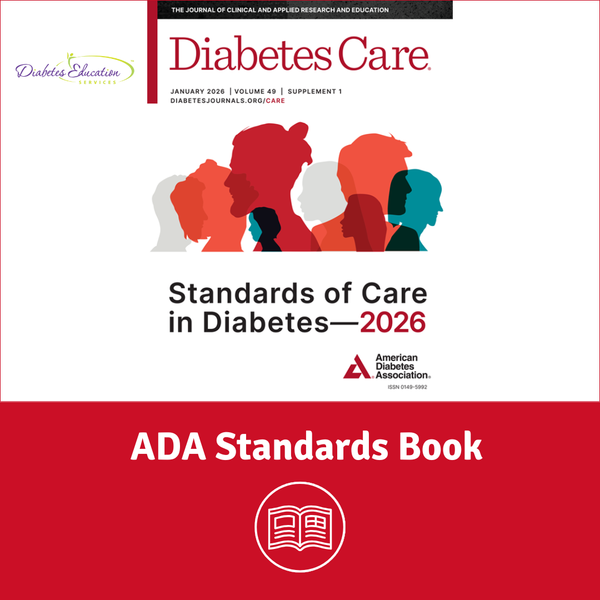
Ready to get certified?
Free CDCES Coach App

Subscribe
eNewsletter
Download
Free Med Pocket Cards
10 Steps Roadmap to Success | Pass the Diabetes Certification Exams
Coach Beverly and the Diabetes Education Services team have custom-designed this detailed roadmap to CDCES and BC-ADM certification exam success!
Step 1: Find Out
To apply for the CDCES or BC-ADM Exam, you must meet the eligibility requirements.
You can use these images as a reference, or click the direct link to learn more here!
We offer complimentary webinars that help you learn more about both the CDCES and BC-ADM exam pathways.
Join us live or listen to our On-Demand version by registering today! Learn how to focus your time and prepare to take the certification Exam. We provide plenty of sample test questions and test-taking tips!
Step 2: Download Coach App
Download our free CDCES Coach App. Our app provides you with easy access to our Medication PocketCards, Online University login, Free Webinars, Question of the Week, Knowledge Bytes, and much more!
“It’s like having a coach in your pocket!”
When you download the CDCES Coach App you have immediate access to the most up-to-date information:
- ADA Standards of Care in an easy-to-read format
- Users enjoy the pinch and zoom functions on all PocketCards
- Updated Diabetes Medication and Insulin PocketCards
- Test your knowledge with our Question of the Week & Rationale
You can download it from the App Store or Google Play!
Step 3: Self-Assess
Self Assessment
To determine how to best spend your study time, we encourage you to first assess your Diabetes Knowledge. By using the tools below, you can determine what your best course of action is for certification exam success. We are here to help you create the perfect study plan!
Assess Your Knowledge
We suggest rating your knowledge for the exam outlines below in each of the key areas on a scale of 1-5. One means you are not very familiar with the content and five means you are a pro. Areas with 1-3 ratings deserve the majority of your study time. Areas rated 4-5 warrant less review and study time. Next, map out a timeline that includes the best times to study, and topic areas to review, and start gathering your study resources.
CDCES Exam Outline
The CDCES Exam includes content on providing education and self-management training to people with diabetes across their lifetime; this includes kids, adults, pregnancy, and older adults. It also includes questions on acute illness, hospitalization, and insulin pump therapy. The largest test section includes intervention questions. This area focuses on medications, insulin and pattern management, nutrition therapy, and exercise.
175 Multiple Choice Questions (150 scored/25 pre-test) broken into the following domains:
Domain 1: Assessment of the Diabetes Continuum (37)
Domain 2: Care & Education Interventions (105)
Domain 3: Standards & Practices (8)
BC-ADM Exam Outline
These self-assessment pages will help you identify knowledge gaps and reaffirm content you are familiar with.
175 Multiple Choice Questions broken into the following domains:
Domain 1: Assessment and Diagnosis (45)
Domain 2: Planning and Intervention (50)
Domain 3: Evaluation and Follow-Up (34)
Domain 4: Leadership and Advanced Professional Practice (21)
Practice tests! Practice tests! Practice tests!
To prepare for success, get in your best shape by exercising your test taking muscles. Take as many tests as possible to increase your comfort, confidence and exam readiness.
Are You Taking the CDCES or BC-ADM Exam in 2026?
Register & View FREE Test-Taking Success Webinar
Learn Proven Test-taking Strategies from Coach Bev!
Watch the Test Taking Success Webinar recording, designed specifically for busy healthcare professionals preparing for diabetes certification.
During this webinar, you will have the opportunity to answer and dissect 20 sample exam questions alongside Coach Bev. Learn how to avoid common exam pitfalls and get to the best answer!
This content will boost your confidence and clarity so you can walk into exam day feeling prepared, calm, and in control. Coach Beverly has helped thousands of candidates cross over the finish line to success. She has passed her CDCES exam 7 times and counting.
🎯 Gain Confidence with Proven Strategies —save your spot today.
Step 4: Build Study Plan
Once you have identified areas where you want to focus your study time, it's time to determine how to best fill in the knowledge gaps you identified when you did your self-assessment using the exam outlines. Depending on your learning style there are different options to fill in identified knowledge gaps and increase your depth of diabetes knowledge.
Both certification exams include content on the Standards of Care, pharmacology, behavior change, Medical Nutrition Therapy, psychosocial issues, CVD and CKD risk mitigation, technologies, and diabetes care through the lifespan.
Find the Study Plan For YOU!
Step 5: Review
In preparation for exam success, it is important to be familiar with the National Standards of Care and Position Statements published by the American Diabetes Association (ADA), the American Association of Clinical Endocrinology (AACE), and the Association of Diabetes Care & Education Specialists (ADCES).
These Standards and National Guidelines are important not only for the exam but for your own clinical practice. As diabetes specialists, providing evidence-based care that is up-to-date and accurate translates into the best care.
Coach Beverly Study Tip
Know the National Goals for the exam. Keep in mind that your particular clinic goals may not match the national goals. So, leave your clinic goals behind when you are taking the exam.
Top 5 Articles to Review
Based on student feedback and the exam outline, here are the top five articles to start reviewing:
Step 6: Learn Meds & Insulin Therapies
An important part of being a successful Diabetes Educator is gaining a thorough understanding of diabetes medications and insulin therapy.
Coach Beverly Study Tip
On the exam, they list the generic and trade names for the medications. Make sure you know what class the medication belongs to, precautions, side effects, and important patient teaching points.
A helpful strategy is to be very familiar with the content outlined in our Medication and Insulin PocketCards.
Diabetes Medication and Insulin PocketCards
You can now purchase all four of our medication PocketCards in a new laminated accordion-style format or download for free now. The perfect study partner!
We also offer many online courses that review the critical content for medications that will help increase your confidence and knowledge for the exam and your clinical setting.
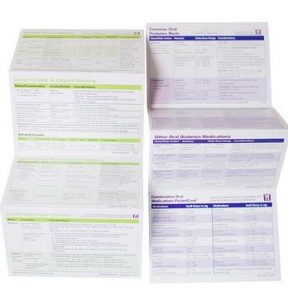
Meds & Clinical References & Exam Study Cheat Sheets
Our diabetes cheat sheet page is brimming full of useful information for your clinical practice and exam success. Updated annually by Coach Beverly to reflect the latest ADA Standards, we invite you to take a look around and enjoy these helpful resources.
The exam also includes questions about common medications to treat hypertension and lipids. Make sure to have a general knowledge of the main classes, side effects precautions, and patient education content. Here are the best resources to build your medication knowledge:
Print these "cheat sheets" as part of your studies, plus they are great resources to have available in your practice setting.
Step 7: Understand Diabetes Care Philosophy
When entering the field of Diabetes Education, it is important to be familiar with the philosophy behind how-to approach diabetes self-management education. Read the following to gain insights into the philosophical underpinnings included in the certification exams.
Empowerment vs. Compliance Model Chart
When entering the field of Diabetes Education, it is important to be familiar with the philosophy behind how-to approach diabetes self-management education. Read the following to gain insights into the philosophical underpinnings included in the certification exams.
The Use of Language in Diabetes Care and Education
As educators, advocates, spouses, friends, and providers, our use of language can deeply affect the self-view of people living with diabetes every day. Watch our free webinar What We Say Matters FREE Webinar to learn more.
ADCES 7™ Self-Care Behaviors
A must-read for anyone entering the field of Diabetes or as a reference for those already in the field. These 7 Self-Care Behaviors™ provide a framework for patient-centered diabetes self-management education and training (DSME/T) and care.
Step 8: Complete Experience Requirement
Complete Experience Requirement
After meeting the discipline requirement, applicants must meet the experience requirement for the certification exam.
Click the drop-down menu(s) below to learn more about CDCES and/or BC-ADM Exam Hour Requirements!
CDCES Exam Hours Requirements
CDCES Exam Hours Requirements
- 15 CE Hours – For the CDCES exam, a minimum of 15 clock hours of continuing education activities are required. These hours must apply to diabetes and received within two years of applying for certification. Since all of our programs are accredited by the CDR, our online and live courses fulfill the CE requirements. Read more about our Accreditations here.
- 1000 hours of Diabetes Care & Education – Applicants must complete a minimum of 1000 hours of Diabetes Care & Education to sit for the CDCES exam. This practice hour requirement has been adjusted in consideration of the pandemic, to now required within the past 5 years, vs. within the past 4 years pre-pandemic.
What counts as “Diabetes Care & Education” hours?
From page 4 of the 2026 Certification Examination for Diabetes Educators Handbook, here is an explanation of what counts towards the 1000 hours requirement:
- Assessment: The participant’s DCE needs are identified. This process is led by the participant with assessment and support of the educator.
- Education and Care Plan: The participant’s individualized education and care plan is developed. The plan reflects the participant’s self-management goals and current evidence and practice guidelines and includes criteria for evaluating outcomes.
- Interventions: The specialist delivers intervention options to assist the participant in meeting self-management goals.
- Ongoing Support: The specialist provides options for ongoing support and resources. The support option(s) is selected by the participant to best meet their self-management goals.
- Participant Progress: The specialist will monitor and communicate whether the participant is achieving their self-management goals and other outcome(s) to evaluate effectiveness of interventions. Additional assessments are based on the participant’s needs across the lifespan.
- Documentation: The specialist documents the assessment, education plan, intervention, and outcomes in the participant’s health record.
- Services Development/Administration: Development and administrative activities performed as part of DSMES services.
BC-ADM Exam Hours Requirements
BC-ADM Exam Hours Requirements
- 500 advanced clinical practice hours – To apply for the BC-ADM exam, you must complete 500 clinical practice hours within 48 months prior to applying for the certification exam. Clinical hours must be earned after relevant licensure and advanced degree was obtained.
What counts as “Advanced Clinical Practice” hours?
From pages 11 & 12 of the BC-ADM Handbook, here is an explanation of what counts towards the 500 advanced clinical hours requirement:
Managing complex patient needs
Monitoring, interpreting, and applying results generated from complex patient data sets
Formulating and prioritizing a problem list
Educating individuals about medical nutrition therapy
Incorporating technologies into practice for the maintenance and/or management of diabetes and cardiometabolic conditions
Managing and adapting interventions for special populations
Assisting patients with therapeutic problem-solving
- Conducting therapeutic interviews using a systematic approach
- Counseling patients on lifestyle modifications
- Incorporating appropriate behavior change models and techniques to improve health
outcomes through problem-solving and teamwork - Collaborating with individuals to individualize and prioritize their care
- Establishing and implementing measurable self-care goals to improve health outcomes
- Utilizing technology-enhanced devices to collect, analyze, and inform judgments for
- individual and/or aggregated health data
Adjusting medications if within their discipline’s scope of practice
- Managing pharmacologic therapy options and interventions for diabetes, cardiometabolic, and related conditions
Treating and monitoring acute and chronic complications and other comorbidities
- Performing comprehensive assessments of diabetes, complications, and related chronic and cardiometabolic conditions across the lifespan (e.g., functional status, sensory/foot, eye exam, medication, and complementary alternative medication review)
- Implementing standards of diabetes care and clinical practice guidelines pertaining to assessment
- Interpreting and applying results generated from assessment and diagnostic tests
- Performing screenings and understanding diagnostic criteria for diabetes, cardiometabolic and related conditions
- Implementing interventions that reflect standards of diabetes care and clinical practice guidelines
- Discussing surgical options for diabetes management including eligibility, risks, benefits, and long-term outcomes
- Collaborating with healthcare providers to coordinate care for individuals and populations
- Managing diabetes in the hospital and during transitions of care
- Engaging in telehealth services for diabetes management
- Performing interventions pertaining to follow-up care, reflecting standards of diabetes care and clinical practice guidelines
Addressing psychosocial issues
- Evaluating self-care behavior and perform behavioral health assessment
- Assessing social determinants of health
- Collaborating with mental health providers to adjust interventions for psychosocial conditions
Participating in research
- Utilizing QI infrastructure to gauge population-level diabetes measures
Mentoring other clinicians in diabetes care
- Reviewing treatments and outcomes, comparing, and explaining results
- Evaluating and adjusting diabetes and cardiometabolic treatment care plans accordingly
Step 9: Prepare
Prepare
Set yourself up for success. Arrive early and get a good night's sleep. Eat a healthy breakfast. Visualize yourself feeling confident and prepared. Join Coach Beverly's Test-Taking Coach Session for extra tips and recommendations.
Test Taking Day
Eliminate false answers and choose the BEST answer. Don't get lured in by overly complex answers, look at each answer as either true or false.
Focus on NATIONAL standards- leave your clinical goals behind.
Don't read into the question or answers - sift through vignettes to find relevant information. Choose the best answer based on the information provided in the vignette. Stay centered- move, stand and breathe during the exam.
Step 10: Celebrate!
Celebrate!
Celebrating taking the CDCES or BC-ADM exam is a fantastic way to acknowledge your hard work and dedication to advancing your expertise in diabetes care.
After taking the exam reflect on this milestone and acknowledge all of your effort and commitment that got you there. It’s a moment to be proud of and to share with those who have supported you along the way.
Hear More From Our Community
Share your story of success with us so the entire DiabetesEd Community can celebrate with you!





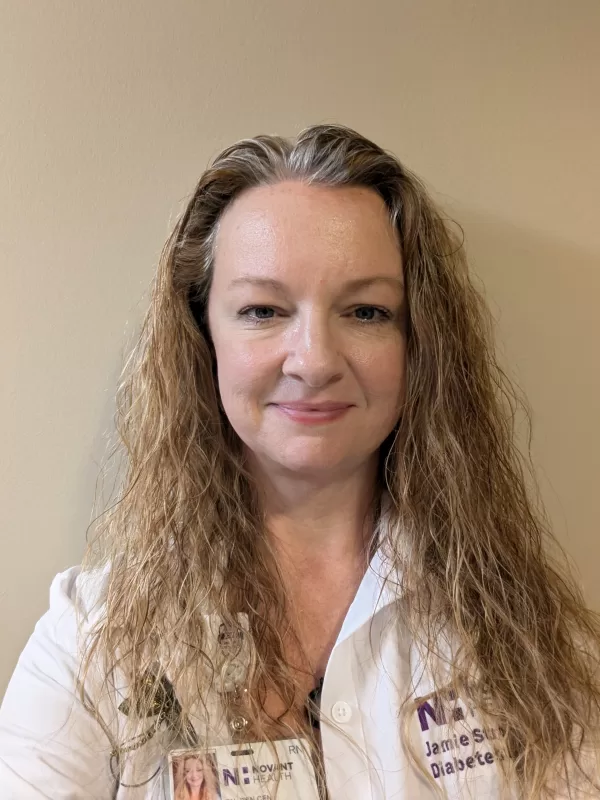


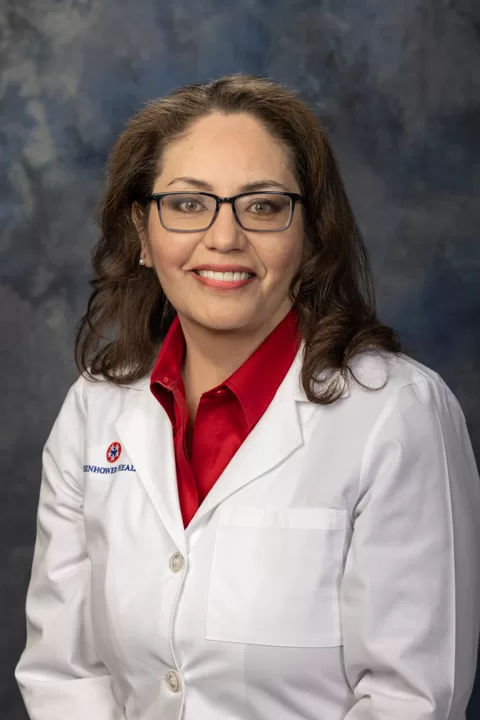
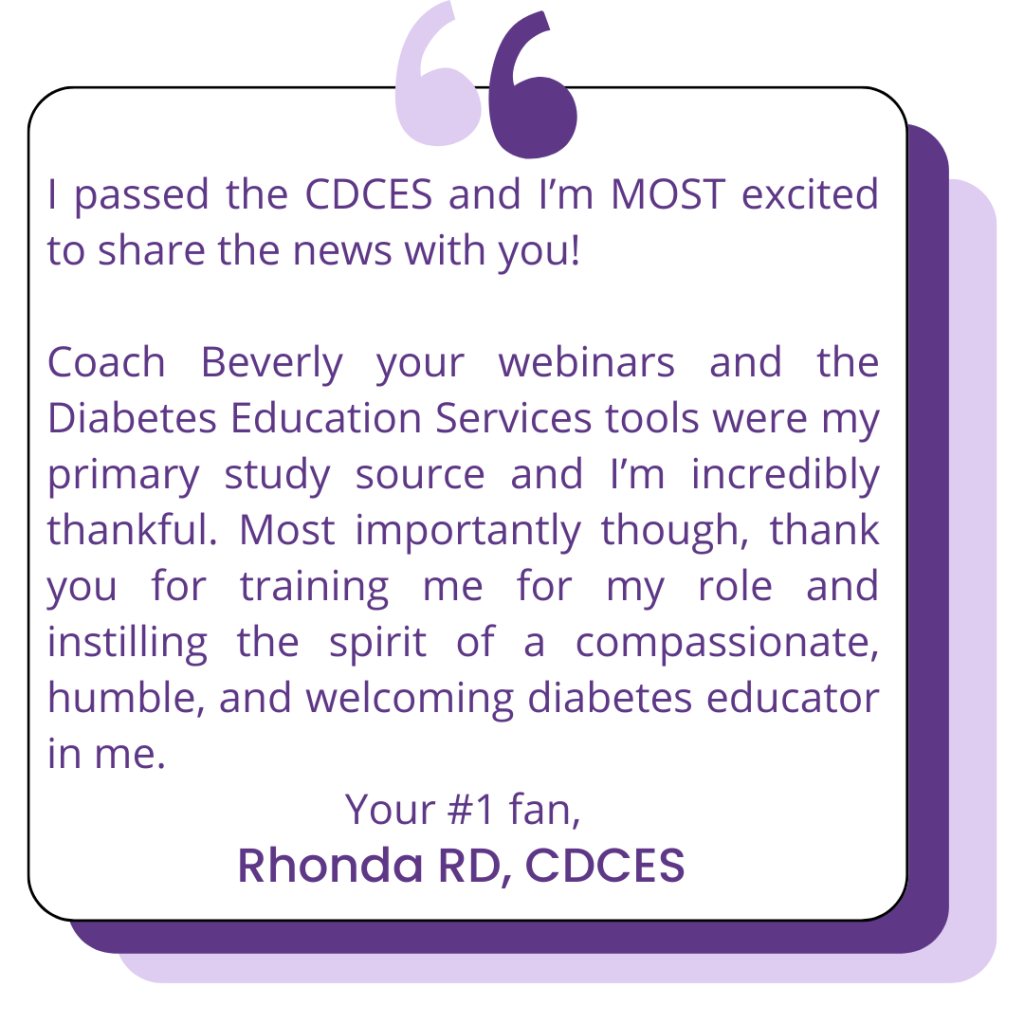
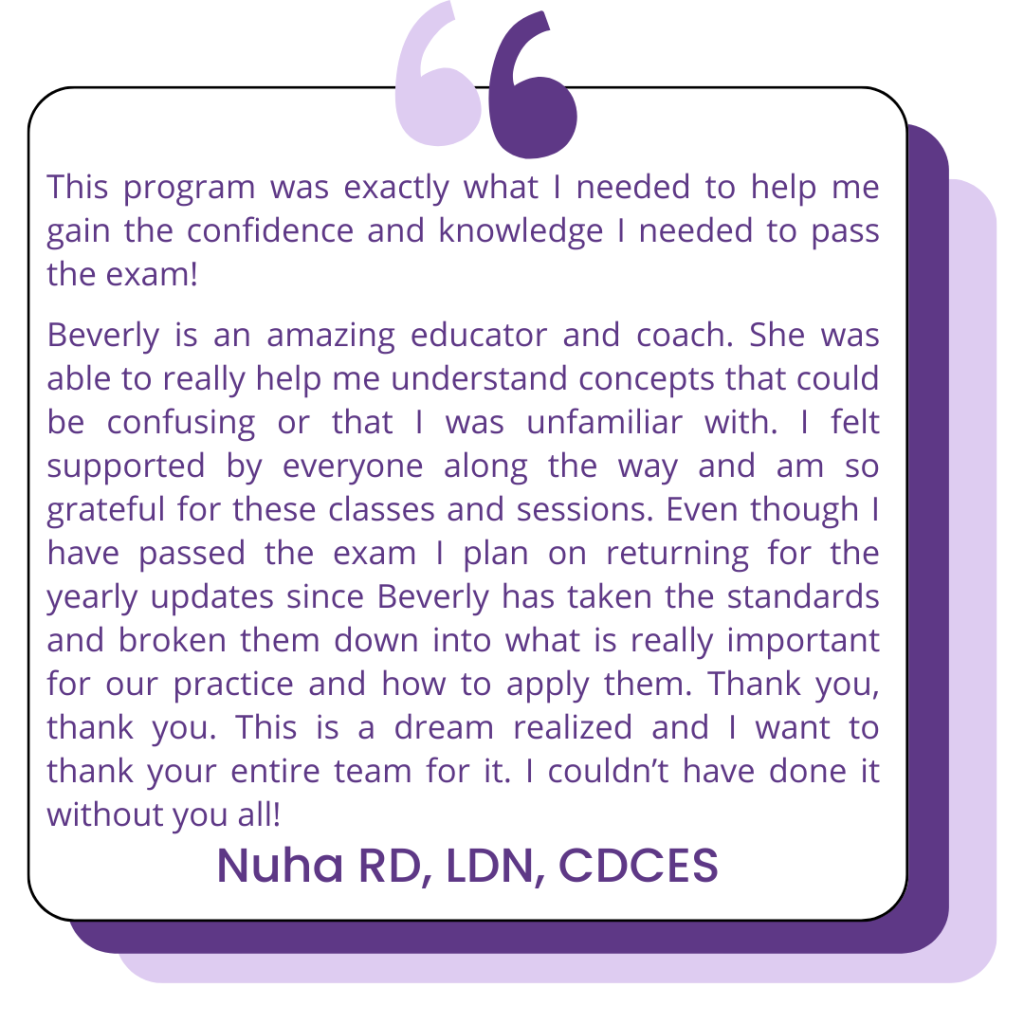
Newly Expanded Accreditation!

For more information on accreditation, visit each individual course page in our Online Store and click the “Accreditation” tab.
Our course CE credits are through the following accrediting bodies:
- ACPE,
- AMA PRA Category 1 Credits™,
- ANCC, and
- CDR
Our CEs count toward the CDCES exam and CDCES / BC-ADM renewal*!
The use of DES products does not guarantee the successful passage of the certification exam. CBDCE and ADCES do not endorse any preparatory or review materials for the CDCES or BC-ADM exams, except for those published by CBDCE & ADCES.

